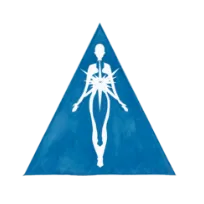SUMMARY: Water is central to everything the body needs and does and critical for healing. Most people could stop using medicines if they drank enough water. TBM water recommendation is 2/3 an ounce per pound of body weight during healing and 1/2 an ounce thereafter. It takes 1 – 3 months to fully hydrate.

Look at the drink selection in any convenience store. There are sports’ drinks, sodas, protein shakes, milk drinks, concentrated juices, fresh squeezed juices, flavored waters, teas, detox drinks, and some plain water selections. The marketing is alluring–gleaming packaging, brightly dyed juices, and dazzling displays. When the options seem endless…Why water?
Water Intake Benefits
Water myths keep people from drinking water. One myth is that you can receive up to 20% of your daily hydration needs through your food. While this sounds like a home-run two-for-one, it’s simply not true that water content in food is hydrating. There is a myth that drinking water while or directly after eating dilutes stomach acids and disrupts digestion. Of course, this is also not true. Water serves many purposes within the body–aiding digestion is one of them, so both of these myths are busted.
To understand why staying hydrated is so important, let’s look at some ways water benefits the body:
- Adequate hydration is required for TBM healing protocols.
- H2O is needed for energy production.
- Water reduces inflammation and pain.
- H2O is crucial for toxin elimination.
- Water helps in the digestion of food.
- It maintains mucus linings that harbor beneficial microbes and provide a layer of immune defense.
- Water, along with insoluble fiber, promotes proper bowel elimination.
- H2O helps with weight loss by eliminating fat-promoting toxins and reducing appetite.
- Water keeps skin vibrant, pliable, and young-looking.
- It promotes immune functions from healthy mucus linings to adequate blood and lymph.
- Water promotes teeth and gum health by washing away acidic food particles and encouraging saliva production.
- H2O helps keep joints lubricated and injury-resistant.
- Water enhances regulation of body temperature.
- It promotes strong muscles.
- Water decreases bowel transit time thereby reducing possibility of parasites hatching in the gut.
- H2O promotes sound sleep.
- Water makes our lips more kissable – That’s enough of a reason right there! 😉 The fact that it reduces the likelihood of a hangover is pretty awesome too.
- Plus many, many more…
Additional Hydration Info
Not surprisingly, it’s incredibly rare to meet someone who drinks enough water. Remember, only water is water. Tea is not water. Orange juice is not water. Beer is not water. Coffee is not water. While liquid in any form will prevent acute death from dehydration, it is not adequate to properly hydrate the trillions of body functions that depend on it!
Furthermore adding anything to water signals food and not water to the body and it will have a diuretic effect. What that means is that while you are getting fluid in, you are losing more out of your kidneys as a result. This includes minerals (even alkalinizing ones!), vitamin C powder, sugar, stevia, lemon wedges, cucumber slices, mint leaves and the like. Again, only unaugmented water properly hydrates.
Coffee, tea, soda, fruit juices, alcoholic beverages, milk, and protein shakes do not count as water intake either. In fact, these beverages take water to filter through your system, so they are depleting any reserves in the blood and body to aid in the body’s job of filtering them out, which is why under-hydration can occur, even with a high fluid intake.
If you’re concerned about chlorine in municipal (“tap”) water, here’s a pro-tip on dealing with it. Use a water pitcher to prime your water first. Tap water left out on the counter for thirty minutes will lose all of the chlorine because it evaporates. The only time you will have an issue is if your municipality uses chloramine instead of chlorine in the water. It doesn’t evaporate. Call and check with your municipal water company to find out which your community uses.
HOW MUCH WATER DO I ACTUALLY NEED?
The TBM recommended minimum water intake is 2/3 an ounce per pound of body weight (calculate .66 multiplied by your weight or 43.5 militers per kilogram). The maximum water intake, unless directed otherwise by a practitioner, is one quart or liter more than that.
For instance, if you weigh 150 pounds, the math looks like this:
.66 x your weight in pounds = ounces of water you need
.66 x 150 = 99 ounces of water. To make keep track simpler do one more math equation to determine how many quarts per day. A quart has 32 ounces in it.
99 divided by 32 equals 3.1 quarts.
Therefore, a 150 pound individual is required to drink 3.1 to 4.1 quarts per day to optimally hydrate.
Tips to Meeting Your Water Goals
Getting started, you may want to measure your water intake by figuring out how many of your chosen container it takes to reach your water intake goal. For instance, you could purchase a 32-ounce glass container. Then make plans to fill it ‘x’ amounts of times each day at set intervals to make sure you are reaching the minimum. Our example of a 150 pound person would almost get to their goal filling a 32-ounce water bottle three times.
For the body to adequately remove toxins, this formula for water intake is where you need to be. ‘I don’t want to’ or ‘I don’t like water’ are not reasons for not meeting water intake requirements for your body. It is also important that you do not limit salt intake while drinking your daily water.
Word to the wise: Making this life change may require planning and changes in habits. Bathroom visits will increase with water intake until your body regulates, so you may need to plan ahead. You don’t want to be away from accessible amenities while you acclimate. Next, it is imperative that you get the minimum water intake daily without fail, this includes workdays and weekends.
Prior to beginning TBM care, as a general rule, practitioners require clients to meet their water intake level for a week before beginning care.
Finally, drink up.
To understand the dangers of chronic dehydration, read more: Chronic Dehydration: Symptoms, Causes, Treatment, and More (healthline.com)
